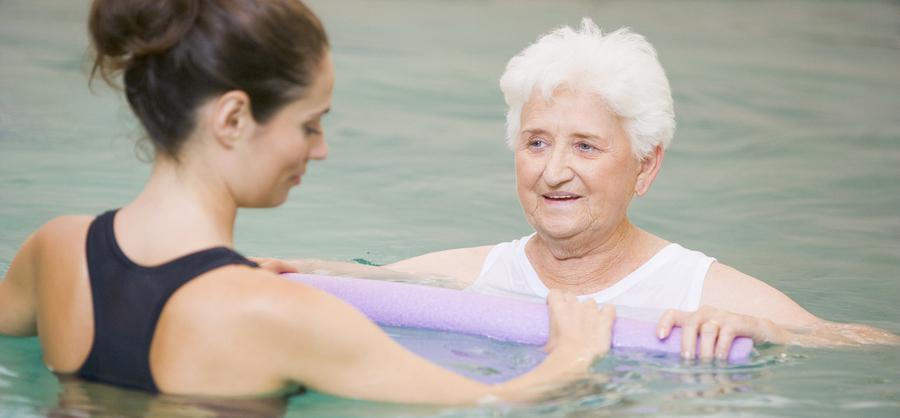As a caretaker, you're undoubtedly familiar with the challenges that come along with aging. You also know how important physical activity can be. But finding activities that are suitable for your aging loved one can be extremely difficult. Interestingly, hydrotherapy has shown a lot of promise in this regard. But what is hydrotherapy? What are its benefits? Is there anything else you need to know about this therapeutic option? Here's what you should know.
What Is Hydrotherapy?
Frustratingly, the term "hydrotherapy" has a pretty broad application. Generally speaking, it can refer to any procedure that uses water as a therapeutic tool, whether internal or external. These various forms of hydrotherapy vary widely in their uses and their degree of scientific backing.
Often, the term is is used to describe external hydrotherapy: a treatment that can include anything from simply sitting in water to actually exercising in it. To help clear this up, many health professionals will use the term "aquatic exercise" when discussing activities performed in water. Within the realm of aquatic exercise, things get even more specific. There are water-based activities designed to focus on an array of health and fitness aspects -- even aquatic yoga.
Which Type Is Best?
When deciding what form of hydrotherapy is most useful for your situation, it's important to consider the unique needs of your loved one. Talk the situation through with them and their doctor to determine exactly what should be addressed. Then compare that to the known benefits of various water-based therapies. To help you make an informed decision, here are three of the most common programs you're likely to find.
- Warm water therapy: According to the Arthritis Foundation, spending time in a warm bath could have numerous pain-reducing benefits. By increasing blood flow and decreasing inflammation, water between 92 and 100 degrees Fahrenheit can offer relief for both joint and muscle soreness. While there are benefits from simply being in the water, light stretching can increase the positive effects even more. How long should these sessions last? It seems like the maximum benefits occur after about 20 minutes.
- Aquatic balance training: A 2012 study looked specifically at the benefits of water-based stretching and balanced training in men ages 64 to 70. This followed an almost identical 2008 study that examined the benefits for women. In both cases, the eight-week-long programs, which consisted of three classes per week, lead to marked improvements in balance. The researchers suggest that these improvements could lower the risk of falls and related injuries.
- Aquatic strength training: Some aquatic exercise programs actually incorporate strength training into the routine in an effort to improve bone and muscular health. In 2002, a team from the University of Japan looked specifically at the potential benefits of this approach and found that these programs not only increased strength but also cardiovascular health, flexibility, and body composition.
Whether you enroll your loved one in hydrotherapy session or simply suggest they take up swimming depends entirely on their abilities and the goal of the therapy. Swimming requires a considerable amount of strength, endurance, and coordination right away, so it may not be realistic in all cases. And while a standard swim will likely cause some improvements in balance, that isn't the focus of the exercise. So if that's your goal, then a more targeted approach like hydrotherapy would be best. Talk to your aging loved one to decide what's best for their health.




